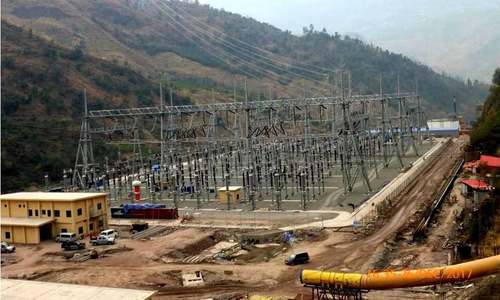ISLAMABAD: The Auditor General (AG) of Pakistan has demanded detailed investigations to fix responsibility for losses of almost Rs700 billion caused to the exchequer due to mismanaged development of the Neelum-Jhelum hydropower project and loss of water rights over the Jhelum River to India under an international arbitration.
In its performance audit of the 969-megawatt power project worth Rs510bn in Azad Jammu and Kashmir submitted to the parliament on Monday as required under Article 170 of the Constitution, the AG reported that the project faced a cost overrun of almost Rs400bn, loss of non-accrued financial benefits of about Rs237bn and a delay of over 21 years.
This is on top of a series of irregularities committed by various governments, departments and officers resulting in more than Rs60 billion losses besides annual recurring loss of Rs5.15bn that the AG said warranted at least two dozen further investigations to fix the responsibility.
“Due to delays the envisaged benefits could not be achieved and project cost increased by Rs400bn…Moreover due to non-completion of the project, Pakistan lost the case in the Court of International Arbitration on the rights of western rivers under the Indus Basin Treaty. NJHP is an exemplary mismanaged project resulting into heavy cost and time overrun,” the AG observed.
Neelum-Jhelum power project’s performance audit submitted in parliament
The audit reported ‘unjustified abnormal cost overrun of Rs389bn’ and loss due to non-achievement of envisaged financial benefits of Rs237bn. It also reported loss of Rs30bn revenue and unjustified claim of Rs175million rock burst and unjustified and uneconomical deployment of tunnel boring machine that failed to achieve envisaged benefits of Rs23.15bn.
The audit also pointed out irregular and unjustified award of construction of contract of Rs90.90bn before the appointment of consultants and non-obtaining of performance guarantees worth Rs48.8bn resulting into suspension of foreign loans and delay in the project.
Also, the AG highlighted poor performance of consultants for the project engaged at the cost of Rs16bn and non-recovery of Rs9.90bn as liquidity damages from the contractors.
According to the report, main reasons identified behind non-completion of project were non-achievement of financial close till the project completion, delay in land acquisition, delay in adequate power supply, frequent major design changes, non-finalization of detailed engineering design, and frequent issuance of variation orders.
Under 1960 Indus Waters Treaty, the audit said, India was not allowed any new agricultural use that may adversely affect the then existing agricultural use or hydropower use by Pakistan on tributaries of Jhelum. A 1988 decision of the Economic Coordination Committee (ECC) of the cabinet ruled that ‘those responsible for not undertaking forward planning and causing delays in implementation of projects should be taken to task”, while a cabinet committee on Wullar Barrage and Storage Project had decided that Pakistan should seriously consider taking in hand the construction of feasible projects on Jhelum river for agricultural use or hydropower to forestall India from river diversion through Wullar barrage.
Wapda, being an executing agency, had prepared a feasibility study in 1984 for a 550mw Neelum-Jhelum hydropower project but its PC-1 could not be approved until 1989 with completion deadline in 1996. The project could not be executed for eight years but the feasibility study was revised to 969 megawatts in 1997. In 1998, a revised PC-1 was prepared but disapproved by ECNEC with the direction to develop the project through the private sector.
ECNEC approved a revised PC-1 in 2002 for completion in eight years or by 2010. But after a delay of six years, the contract was awarded in January 2008 in the absence of prerequisites like land, financing and consultants. “Non-serious rather half-hearted attitude towards IWT-1960 was clearly evident as NJHP was never taken on priority right from 1984”.
On the other hand, India started work on Kishanganga Hydroproject in the occupied Kashmir and Pakistan lost its position on the rights of western rivers due to delays of NJHP as per the decision of the international arbitration. The AG said the project management and the ministry reported that 10pc energy loss caused to NJHP by Kishanganga project could be compensated by a diversion tunnel but it was not convincing justification because Pakistan lost water rights in international arbitration due to delays. “If the project had completed in due time, Pakistan could have obtained full rights on the water”.
The audit said the project cost increased by about Rs272bn on the premise of induction of tunnel boring machine instead of usual blast and excavation practice on the premise to complete the all the four units of the project by October 2016 but none could be completed much beyond that date.
Published in Dawn, February 26th, 2019














































